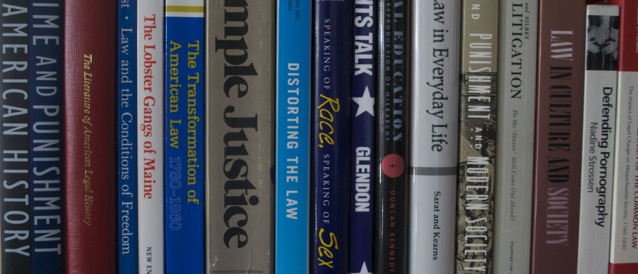
Inquiring Minds asks people to choose a book, article, film, radio story, or other media piece that changed the way they think about law and how it works in society. TLOTL
Placing Law in Global Conversation
by Mark Weiner
My choice may be a bit out of the ordinary, because the book that most deeply shaped how I think about law was published 135 years ago, in 1877. It’s also not exclusively or even explicitly about law. The book is Lewis Henry Morgan’s Ancient Society.
Born in 1818 in upstate New York, Morgan practiced corporate law for more than twenty years before turning his attention to scholarship. A founding father of American anthropology, he had a special interest in Native American culture (and the political needs of Native American communities), especially that of the Iroquois. In recognition of his work on their behalf, the Seneca adopted him into the tribe in 1846, bestowing him the name of Da-ya-da-o-wo-ko, or bridging-the-gap. Backed by the Smithsonian Institution, in 1859 Morgan began an multi-year research trip to study native peoples in the west. The trip would lead him to write one of the most important scholarly works of the era.

Ancient Society is a study of how human communities pass through seven developmental stages as they evolve from “savagery” to “civilization.” Morgan argues that each evolutionary stage is characterized by a distinctive type of family structure, body of property rules (including rules of inheritance), and government organization. To make his argument, Morgan refers to a dizzying range of peoples and how their communities are ordered, from the Iroquois Confederacy to ancient Rome, enabling him to draw extraordinary connections between societies around the world. Here is one typical passage about ancient government I’ve always found especially arresting:
“The Irish sept, the Scottish clan, the phrara of the Albanians, and the Sanskrit ganas, without extending the comparison further, are the same as the American Indian gens, which has usually been called a clan. As far as our knowledge extends, this organization runs through the entire ancient world upon all the continents, and it was brought down to the historical period by such tribes as attained to civilization. Nor is this all. [Clan] society wherever found is the same in structural organization and in principles of action; but changing from lower to higher forms with the progressive advancement of the people.”
Morgan shaped how I think about law not so much in its technical particulars. The truth be told, I couldn’t tell you much offhand about the specific differences between what Morgan described as the “middle period of savagery” and the “later period of barbarism,” or his views about the divergence between ancient Hawaiian and Greek marriage rules.
What I remember instead is the way he put social and legal systems into conversation with each other. He showed me how important it is to think about a legal system within its more general cultural and historical context and to understand it within a global framework. Morgan’s book encouraged me to think about law culturally, historically, and comparatively.
A professor of law at Rutgers-Newark School of Law, Mark S. Weiner blogs as worldsoflaw.com. His most recent book, The Rule of the Clan: What an Ancient Form of Social Organization Reveals about the Future of Individual Freedom, is in press with
Farrar, Straus and Giroux.









